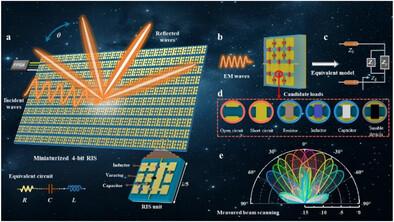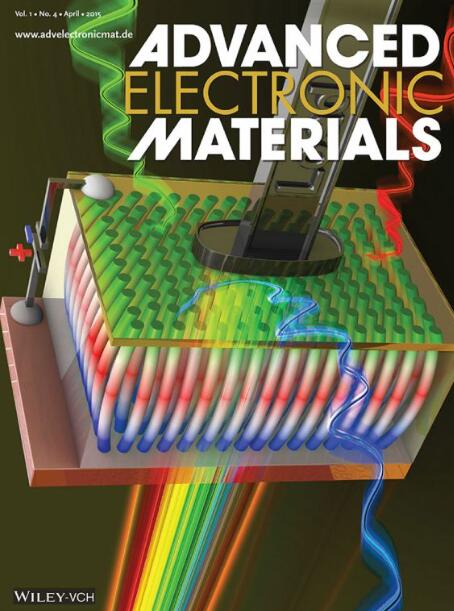A General and Efficient Framework for the Rapid Design of Miniaturized, Wideband, and High-Bit RIS
IF 5.3
2区 材料科学
Q2 MATERIALS SCIENCE, MULTIDISCIPLINARY
引用次数: 0
Abstract
High-performance reconfigurable intelligent surfaces (RISs) are growing in significance for practical applications. However, current design methods typically accommodate one or two properties of RISs, and reliance on time-consuming and burdensome full-wave simulations slows down design efficiency. To overcome these limitations, we propose a general and efficient framework for the rapid design of high-performance RISs. It integrates advanced antenna design techniques and incorporates various load types, quantities, and values to achieve the design of high-performance RISs. To boost efficiency, the framework leverages a multi-port network model to quickly obtain the electromagnetic (EM) responses of RIS units with various loads and employs the genetic algorithm for fast optimization of desired units. For validation, we designed a miniaturized, wideband, and high-bit RIS unit using this framework. It achieves 4-bit phase modulation, 23% relative bandwidth and a λ/5 size. A RIS prototype with a size of 20×10 was designed, simulated, and measured based on this unit. All results are in good agreement, demonstrating effective beam scanning from -50° to 50°. The entire design process takes only 1.2 hours and one full-wave EM simulation. This framework enables rapid high-performance RISs design, facilitating their large-scale applications in communication and radar systems.

一种快速设计小型化、宽频带、高位RIS的通用高效架构
高性能可重构智能表面(RISs)在实际应用中越来越重要。然而,目前的设计方法通常包含RISs的一个或两个特性,并且依赖耗时且繁重的全波模拟降低了设计效率。为了克服这些限制,我们提出了一个快速设计高性能RISs的通用和有效的框架。它集成了先进的天线设计技术,并结合了各种负载类型、数量和值,实现了高性能RISs的设计。为了提高效率,该框架利用多端口网络模型快速获取RIS单元在不同负载下的电磁响应,并采用遗传算法快速优化所需单元。为了验证,我们使用该框架设计了一个小型化、宽带和高比特的RIS单元。它实现了4位相位调制,23%的相对带宽和λ/5尺寸。在此基础上设计、模拟和测量了RIS原型,尺寸为20×10。所有结果吻合良好,证明了有效的波束扫描范围为-50°至50°。整个设计过程只需要1.2小时和一次全波电磁仿真。该框架能够实现快速高性能RISs设计,促进其在通信和雷达系统中的大规模应用。
本文章由计算机程序翻译,如有差异,请以英文原文为准。
求助全文
约1分钟内获得全文
求助全文
来源期刊

Advanced Electronic Materials
NANOSCIENCE & NANOTECHNOLOGYMATERIALS SCIE-MATERIALS SCIENCE, MULTIDISCIPLINARY
CiteScore
11.00
自引率
3.20%
发文量
433
期刊介绍:
Advanced Electronic Materials is an interdisciplinary forum for peer-reviewed, high-quality, high-impact research in the fields of materials science, physics, and engineering of electronic and magnetic materials. It includes research on physics and physical properties of electronic and magnetic materials, spintronics, electronics, device physics and engineering, micro- and nano-electromechanical systems, and organic electronics, in addition to fundamental research.
 求助内容:
求助内容: 应助结果提醒方式:
应助结果提醒方式:


